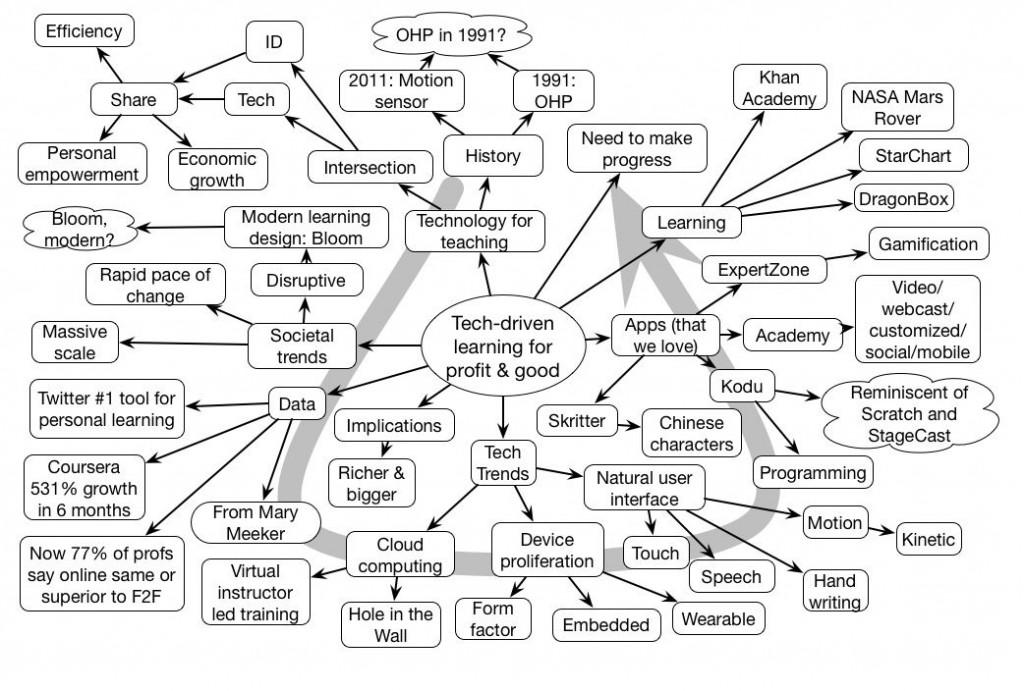Christopher Pirie opened the eLearning Guild’s mLearnCon mobile learning conference with a fair overview of technology for learning. He talked about the usual trends, and pointed to some interesting game apps for learning. Kodu, in particular, is an interesting advancement on things like Scratch and StageCast’s Creator.
I was somewhat surprised by his pointer to Bloom as the turning point to modern learning design, as I’d be inclined to point more to Collins & Brown’s Cognitive Apprenticeship. I also think he should take a look at Donald Clark’s criticisms of Mitra’s Hole in the Wall. Finally, the characterization between the overhead projector as characteristic of 1991 and the Kinect for 2012 is a bit spurious: in 1991 we also had HyperCard, and in 2012 I don’t see the Kinect in many classrooms yet, but his point is apt about the potential for change we have at our fingertips.
Overall, a nice kickoff for the conference.

Thanks for sharing this Clark. It really helps for those of us who couldn’t make it to mLearnCon! Just read through the criticisms of Mitra’s hole in the wall and have some thoughts…
Donald repeatedly refutes conclusions that he himself has arrived at which have almost nothing to do with the results and deductions of Mitra work (not the actual findings based on his premise). The computers were vandalized, so what? Schools are obsolete? Yes, in their current form…he said nothing about teachers being obsolete. Holes in the research based on time comparisons? That wasn’t a measured value and was in fact irrelevant to his inferences. Low level learning? I find it hard to see his examples of classroom curiosity/collaboration/encouragement as a form of low-level learning. Peer pressure, girls missing? This wasn’t intended to be a long term solution to replace schools (and how does 1 picture show that girls didn’t use the holes in the wall?). Educational colonialism? I don’t see how this is even relevant to this discussion, don’t know what to even say about that.
I think Mitra’s reasoning led to the idea was that we need more self-paced learning with mediation, more big questions. We need to trust that the combination of curiosity, collaboration and encouragement is a recipe for learning.
Just my two cents! Thanks.